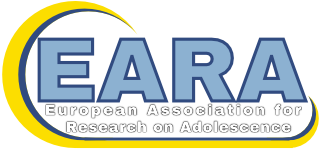
“Powerless, but not Helpless”: Exploring Critical Consciousness Among Adolescents in Germany
Background
Critical consciousness (CC) is a robust framework to understand how adolescents navigate inequitable societies and engage in issues meaningful to them. Our study explored how the three components of CC, critical reflection, sociopolitical efficacy, and critical action, unfold within the contexts of adolescents in Germany. As experiences of marginalization and privilege are embedded wihin multiple levels of context, we leveraged the frameworks of psychological empowerment and PVEST (Phenomenological Variant of Ecological Systems Theory) to guide our analysis with an ecological lens.
Method
Participants were 16 adolescents (Mage = 16.06 years, SD = 1.23, range = 14–18) from large and medium-sized German cities. Data were collected through diaries and in-depth interviews. Diaries were composed of prompts on themes such as identity and free time activities, as well as a task to take a photo of problematic issue in their school or neighborhood. In-depth interviews were semi-structured and included questions on CC in the microsystem and the macrosystem and on future outlooks on issues meaningful to the participants. Collected data were analyzed through reflexive thematic analysis, which entailed developing themes from the data while reflecting on how our personal and theoretical assumptions might influence how we engage with the data.
Results
We established that adolescents recognize issues in their social environments (Theme 1), assess efficacy according to power and knowledge (Theme 2), and act according to efficacy (Theme 3). Each theme relates to the processes of critical reflection, sociopolitical efficacy, and critical action, respectively. Theme 1 demonstrated how issues regarding the physical environment were salient concerns for adolescents and how they situated social issues into the German sociohistorical context. Theme 2 detailed how adolescents felt most efficacious in microsystem settings, where they had the power and knowledge to act effectively. Finally, Theme 3 captured how efficacy drove action in microsystem settings and how adolescents valued collective action and empowerment through micro-actions when tackling societal level issues.
Conclusion
Our study contributes new perspectives to CC literature, particularly by uncovering the salience of climate action among adolescents, the role of power in sociopolitical efficacy, and the significance of micro-actions in addressing broader societal issues. Our findings emphasize that recognizing the diverse ways CC is expressed not only expands our under- standing of it, but, more importantly, affirms the agency and capacity of adolescents in shaping our shared future. This is crucial for empowering them as they navigate an inequitable society where they occasionally feel “powerless, but not helpless.”
Link to paper > Back to Spotlights